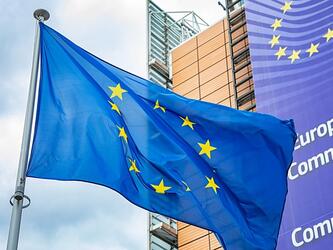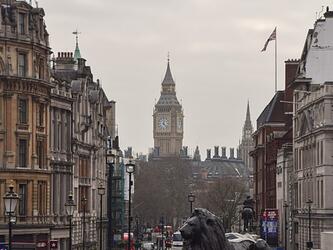YouGov demands removal of ‘defamatory’ blog posts
Murray, a former British Ambassador to Uzbekistan who is now an author, blogger and activist, has published several posts during the election campaignand has made public some of his email exchanges with the firm’s CEO Stephan Shakespeare.
Today his blog carries a letter sent to him by YouGov’s lawyers, Olswang, asking him to remove six items posted on his site over the last few weeks. The letter also seeks an apology and reimbursement of legal costs. If the items are not removed in 24 hours, the letter says, YouGov will ask the host of Murray’s website to take the material down.
Shakespeare (pictured) told Research today: “The letter makes clear we’re not trying to shut him down, we’re just asking him to remove these untrue statements. There’s nothing in any of this.”
YouGov’s poll of reactions to last night’s leaders’ television debate gave David Cameron a higher rating than other surveys. But Shakespeare pointed out that ICM’s poll gave the Conservatives a wider lead than YouGov’s, and said that the results of the various polls fell within typical margins of error. He also pointed out that YouGov, in common with ICM, weights its results to represent the audience of the debate, while others weight to represent the electorate as a whole.
Last week the firm was criticised for opening its online poll of reactions to the leaders’ debate before Nick Clegg had finished his closing statement, but chairman Peter Kellner told Research today that the firm did not begin polling last night until the last speaker, Gordon Brown, had finished.
Kellner insisted that opening the polls early in the last debate had made “no practical difference”, but that the firm had decided to wait until the very end this time to avoid any criticism. “Life’s too short to spend the whole of one’s time engaging on these issues,” he said.

We hope you enjoyed this article.
Research Live is published by MRS.
The Market Research Society (MRS) exists to promote and protect the research sector, showcasing how research delivers impact for businesses and government.
Members of MRS enjoy many benefits including tailoured policy guidance, discounts on training and conferences, and access to member-only content.
For example, there's an archive of winning case studies from over a decade of MRS Awards.
Find out more about the benefits of joining MRS here.













1 Comment
Anon
16 years ago
I do not understand why polling, which clearly prejudices people's voting decisions, is allowed during election campaigns, when media coverage of criminal trials is not permitted until after the verdict has come in, for fear of prejudicing the jury. Or why media coverage is allowed, for that matter. Both exert an influence on voters' decisions when they should be allowed to decide to vote based on policy alone, rather than the biased opinions of our media. I feel the media's role should be to broadcast or print the parties' manifestos, without comment - rather than see it as their role to support or vilify whichever party they choose.
Like Reply Report